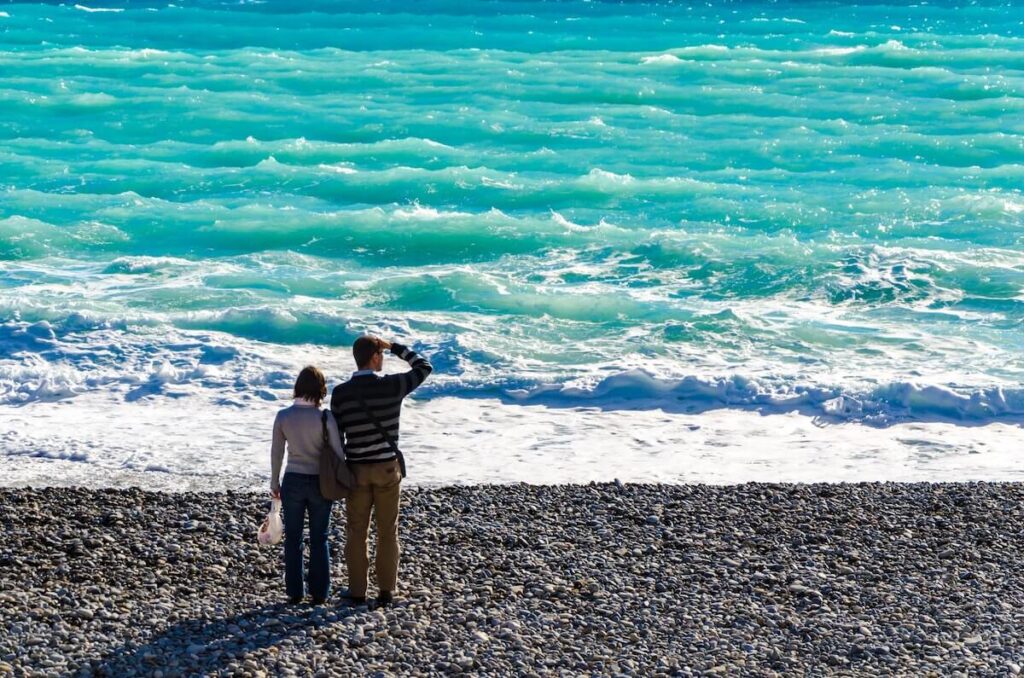Climate report: what consequences for life in the Principality?

Rising temperatures could destroy the tourism industry, among others.
The latest report of the Intergovernmental Panel on Climate Change (IPCC) places particular emphasis on rising temperatures. So what is the situation in our region? We interviewed Nathalie Hilmi, a member of the Scientific Centre of Monaco and an IPCC researcher. Her work consists of making the links between science and economics.

Climate emergency
The first problem is the rise in temperatures. “In the Mediterranean, temperatures are above the global average,” explains Nathalie. “The increase in the global average is 1.1% degrees Celsius. To date, the Mediterranean basin has warmed by 1.5 degrees.”
“On the other hand, we will have more and more droughts and less and less wind. This means less rainfall, creating ecological and agro-ecological risks. Less wind also means that investments in wind power will not be as successful as we thought.”
“Then the problem of heat waves. They’ll be more frequent, intense and longer.” The temperature forecasts in our region will approach those of Algeria, i.e. 40°C in summer. And this will have a direct impact on the region’s economy.
“If tourists decide to go elsewhere because it’ll be cooler, in the long term, we’d have killed an industry that was making money.” In the PACA region, 10% of employees work in tourism.
>> READ ALSO: Will coral reefs be the next victim of global warming?
>> READ MORE: Temperatures in the Mediterranean basin could almost double by 2100
Rising sea levels
“We have the Arctic and Antarctic continuing to melt. And we have the expansion of water due to the rise in temperature. All of this together will make the seas rise,” says Nathalie, before explaining the seriousness of the situation. “On a global level, we thought that the sea level would rise from 43 to 84 cm by 2100. In the Mediterranean, we think it will exceed one metre.
The buildings on the seafront are protected, she claims. However, the infrastructures are only designed to resist to a certain level. The Anse du Port district, for example, has been studied according to all the possibilities of the IPCC projections.
Nevertheless, these projections have their limits. “When you make projections, they are models, and you don’t know which scenario will take place.” In the case of a drastic improvement in the situation, there will be no risks. “If, on the other hand, we allow carbon dioxide (CO2) emissions to rise without limit, then yes, there may be a threat.”
The report is clear: climate change is caused by human activities
Change is still possible
“The real solution that the IPCC recommends is to drastically reduce our CO2 emissions. The report is clear: climate change is caused by human activities.” And for that, there are solutions, at all levels.
Among these, Nathalie Hilmi mentions the idea of eliminating CO2 from the atmosphere by using natural and technological solutions and redirecting investments towards renewable energy.
It is also possible to act in daily life. “We need a change in mentality, and even consumers must be aware that every action they take has an impact.” This goes back to a basic principle of economics: supply and demand. “Demand comes from the consumer, if there is no demand, the producer will not go to the other end of the planet to get their fruit and vegetables.”
The next decisive meeting is COP26. In the run-up to this, Nathalie Hilmi will lead a task force from 12 to 14 October with experts in the natural sciences, economics and political decision-makers. “We’ll get together and reflect over the course of two days.” The solutions found will be presented at COP26, “with the Monaco label on it”.
>> READ MORE: Could finance save the environment? In conversation with economist Nathalie Hilmi
>> READ MORE: Côte d’Azur and climate change: what does the future hold?













